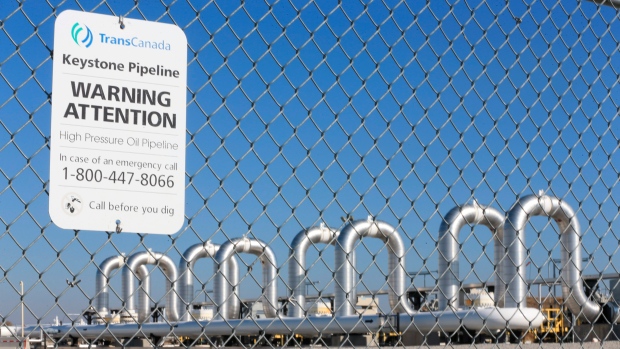Nov 27, 2017
TransCanada asks Nebraska to reconsider its Keystone XL approval order
The Canadian Press

CALGARY - TransCanada Corp. has asked the Nebraska Public Service Commission to reconsider its order that approved an alternative route for the company's proposed Keystone XL pipeline through the state.
Company spokesman Terry Cunha says TransCanada (TRP.TO) is not, however, asking for the approved route to be reconsidered and that the motion is a request to address some questions raised in the decision.
Cunha declined to provide any details on which questions TransCanada wishes to address, saying by email that they are part of the company's ongoing review of the commission's decision and its impact on the cost and schedule for the project.
In the motion, dated Nov. 24, TransCanada asks the commission to consider its amended application in support of its request that the order be reconsidered.
Nebraska regulators approved an alternative to TransCanada's preferred route on Nov. 20 that adds about eight kilometres to the length and shifts it further east away from sensitive ecological areas.
The Nebraska decision was closely watched as it was the last major regulatory hurdle for the pipeline that would bring about 830,000 barrels a day from Alberta to U.S. markets.


